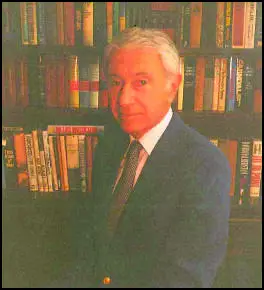WASHINGTON (CN) – Investigators once tasked with examining the assassination of President John F. Kennedy claim in court that the CIA won’t respond to requests for records it might have on covert surveillance of them.
Dan Hardway, Edwin Lopez and G. Robert Blakey each worked on the House Select Committee on Assassinations in the late 1970s. Hardaway and Lopez, who are now attorneys in West Virginia and New York, respectively, served on the committee as investigators from 1977 to 1978.
Blakey, now retired, was a government attorney and law professor at Cornell and Notre Dame who also served as chief counsel and staff director for the committee until its dissolution in 1979.
In a lawsuit filed Wednesday in Washington, D.C. federal court, Hardway, Lopez and Blakey say they filed a Freedom of Information Act request in May, requesting “201 files” or “soft files” on themselves.
201s are a set of documents held by the U.S government on members of the government or military. The file usually contains information describing a person’s military and civilian education history, and can also include personal details like home records or records of awards the person has received.
Hardway, Lopez and Blakey also requested the CIA turn over any “p files,” or surveillance records, maintained at the Office of Security.
Specifically, the plaintiffs want records about surveillance on themselves conducted in Mexico, Cuba and the U.S., including any surveillance of interactions between them and “members or representatives of the Cuban Interest Section, or other representatives of the Cuban government,” according to the lawsuit.
Their request is not limited to reports that originated within the CIA. The investigators also want any reports that another agency or foreign country may have generated and turned over to the CIA.
In addition to records about surveillance on themselves, they also want CIA surveillance records on Gateon Fonzi, an American journalist who was renowned for his work on JFK’s

Gaeton Fonzi (October 10, 1935 – August 30, 2012) was an American investigative journalist and author known for his work on the assassination of John F. Kennedy. He was a reporter and editor for Philadelphia magazine from 1959 to 1972,[2] and contributed to a range of other publications, including the New York Times and Penthouse.[1] He was hired as a researcher in 1975 by the Church Committee and by the House of Representatives Select Committee on Assassinations in 1977, and in 1993 published The Last Investigation which details his experiences and perceptions as a Congressional researcher.
Asking for electronic, telephonic, mechanical, digital, video or any other physical observation, Hardway, Lopez and Blakey say their request is limited to files generated between 1976 and 1979.
The request seeks “operational and non-operational files, records, information and materials including but not limited to counterintelligence and autonomous operations, regarding operations aimed at, targeting or related to the [House Select Committee on Assassinations],” according to the complaint, including “search slips, search instructions, routing slip and forms, memoranda, letters, telephone messages, email” and any other form of written communication about them.
Hardway, Lopez and Blakey – joined by the Assassination Archives and Research Center in Maryland – claim the CIA has not responded to their May FOIA request.
“Plaintiffs have a legal right under the FOIA to obtain the records they seek, and there is no legal basis for CIA’s denial of said right,” the complaint states.
The plaintiffs want an inventory list describing all of the information and materials the CIA finds. They also seek a court order that any records deemed to be exempt from disclosure be preserved by the CIA until the court authorizes their destruction or release.
They are represented by attorney James Lesar of Silver Spring, Md.
The CIA declined to comment on the lawsuit Thursday.
The clock is winding down on the government’s hold on documents related to JFK’s assassination. After the 1992 JFK Records Act passed, the U.S. government was given 25 years to make all of its files on the assassination public.
That deadline falls in October of this year. The cache is said to include 3,000 never-before-seen documents and 34,000 redacted files.
RELATED:
http://www.courthousenews.com/jfk-researchers-demand-cia-records/

